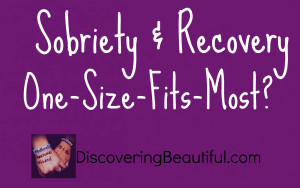
I just read an article written by a clinical psychologist named Gerald Shulman,
who has been in the addiction field, in some capacity, for over 50 years delivering and supervising treatment.
Here is an excerpt from his article in Addiction Professional Magazine
It’s not 1960 anymore; A more balanced model is needed to optimize recovery potential today.
“I have arrived at the conclusion that recovery for many is a three-legged stool.
The seat of the stool represents recovery.”
“The three legs represent: *Psycho-social treatment: 12 step treatment, trauma care, motivational enhancement, cognitive-behavioral therapy etc.
*Recovery support services: group therapies, reading and writing assignments, etc.
*Pharmacotherapy (med assisted treatment)”
“One of these alone, is usually not adequate to bring about Recovery for many addicts.”
(Read the article in it’s entirety here:
www.addictionpro.com/article/its-not-1960-anymore)
Although I (hate) the term addict, I really like what he is saying here.
It’s totally relevant and reflects what I am seeing in the world of sobriety.
Not everyone wants to participate in a 12-step program and often, if they do, it won’t always be enough to lead them to a path of wellness. We are seeing an entirely new group of people who are struggling with addiction using new drugs, having less foundation laid in their lives, and are younger onset at time of first use.
No two people have the same needs. No two treatment plans, recovery plans, or sobriety paths are going to look the same and they don’t need to in order for us to be supportive people. I think we all need to keep an open mind when it comes to support other people who are in recovery, who are striving to live their lives sober.
I will not discount your recovery –if your higher power has a name like mine does, Jesus Christ. If yours doesn’t, if it’s different, or if you don’t have one at all that’s okay too.
I will not discount your recovery — if you loathe 12-step groups, or if you love them. I started my journey as a huge fan of them and have benefited from the steps and principles, and still do. But there are things that I choose not to use, and that’s okay too.
I will not discount your recovery if you choose professional one-on-one counseling and no group therapy.
I personally relied on 12 step meetings, one-on-one counseling, adult homework, CBT, my relationship with God, and literature during the early part of my recovery and beyond.
The point of all of it is to take the desire to change, and meet it with a concoction of individualized treatment therapies that will help you to break the chains that have been holding you back for so long, keeping you from being the best version of you that you are so capable of being.
Ultimately, it is all about utilizing the resources and tools that we need to maintain sobriety and a healthy lifestyle.
Whatever you find that helps you and inspires you to want to live again, do those things.
There is NO SUCH THING as one- size- fits -all sobriety.